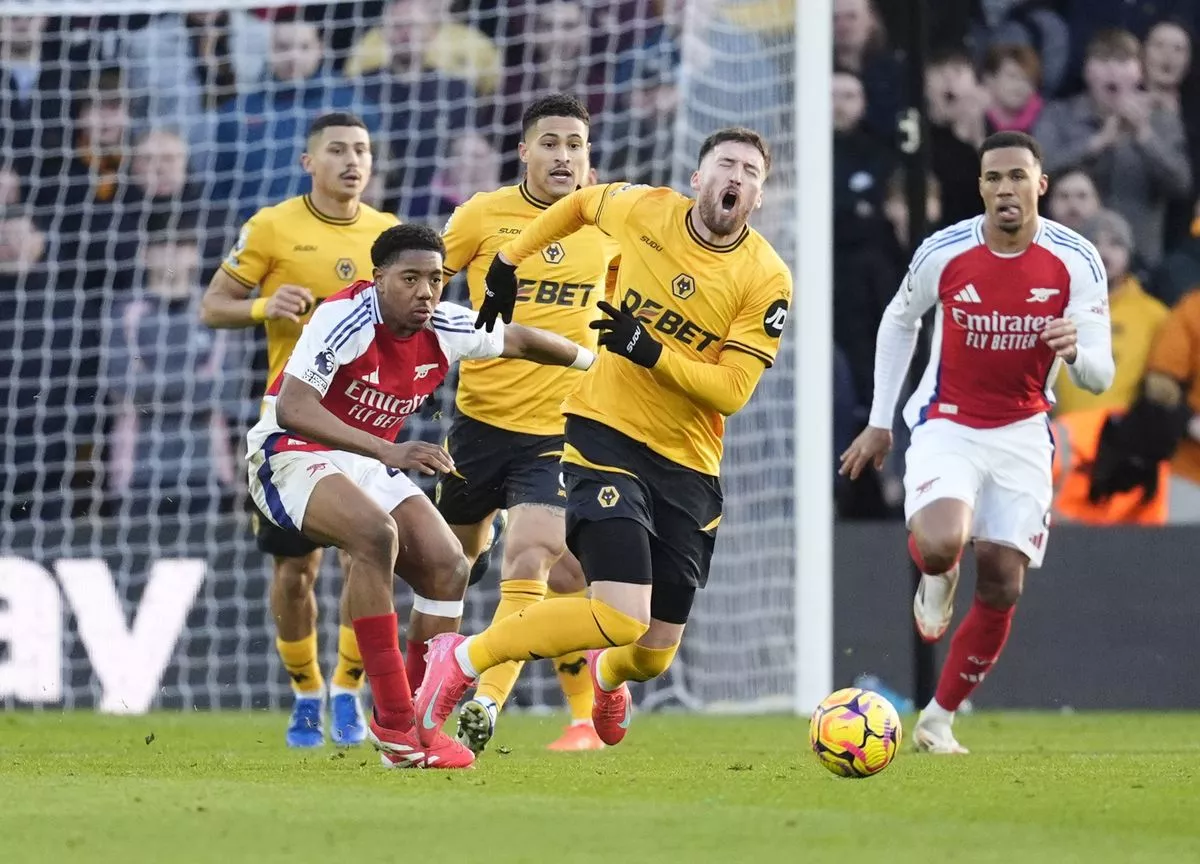The recent decision to rescind Myles Lewis-Skelly’s red card has sparked considerable debate, with many pointing fingers at the original referee, Michael Oliver, for what they perceived as a mistake.
However, it’s important to clarify that Oliver’s decision wasn’t a mistake—he made a judgment based on his observations on the pitch. The incident, which saw Lewis-Skelly sent off for a foul on Matt Doherty during Arsenal’s match at Wolves, was later reviewed by an independent regulatory commission. While the commission overturned the red card, the narrative around Oliver’s role in the decision has overshadowed the true nature of the foul itself.
When the red card was issued, many pundits and fans quickly labeled it as one of the worst decisions they had ever seen, urging for the dismissal to be rescinded. The backlash from social media, pundits, and public opinion created a storm that influenced the decision of the independent commission, which ultimately ruled that Lewis-Skelly’s dismissal was unjust. The public outcry overshadowed Oliver’s professional judgment, and while the commission’s decision to overturn the red card is their prerogative, it sends a message that Oliver’s expertise and judgment were undermined by external pressures.
It is crucial to note that Michael Oliver didn’t make a mistake in his decision; he made a judgment. From his vantage point on the field, he saw Lewis-Skelly’s challenge as a serious foul play, and given the circumstances, he had every right to act on that judgment.
Advertisement
Latest Press Conference
We’re on Social Media



Oliver was involved in the moment, experienced the incident live, and made a decision that he believed was necessary to maintain fairness and discipline in the game. The decision to overturn it, based on a plethora of replays and an overwhelming negative reaction, undermines the authority of on-field referees, especially when there are others who argue that Oliver’s decision was entirely justifiable.
The incident highlighted a broader issue in football regarding premeditated fouls designed to stop counter-attacks, particularly those that are cynical and disrupt the flow of play. Lewis-Skelly’s foul on Doherty, where he intentionally took out the player’s standing leg, was a textbook example of such a challenge. It was an act aimed purely at preventing a counter-attack, and while not necessarily violent, it was certainly a foul that could have warranted a stern punishment. Many football professionals in the past have called for stronger sanctions on these types of fouls, recognizing their impact on the game and their deliberate nature.
Arteta’s Opinion
When Mikel Arteta was asked about Lewis-Skelly’s reaction to the red card being rescinded, the Arsenal manager revealed that the young player was unaware at the time, but would certainly be happy to hear the news. Arteta’s words, though, should not detract from the fact that it was Lewis-Skelly who initiated the foul, not the referee. The teenager’s actions, while perhaps a momentary lapse in judgment, were calculated in intent. His primary goal was to disrupt the opposition’s attacking play, not simply to contest the ball.
While the overturning of the red card may bring a smile to Lewis-Skelly’s face, it’s important to remember that the real issue lies in the behavior that led to the foul, not the referee’s decision to penalize it. The focus should shift from questioning the referee’s judgment to addressing the broader question of how such cynical fouls are dealt with in modern football. The public and the football community must consider whether this kind of foul should be accepted or if stronger deterrents are needed to curb such premeditated actions on the pitch.
